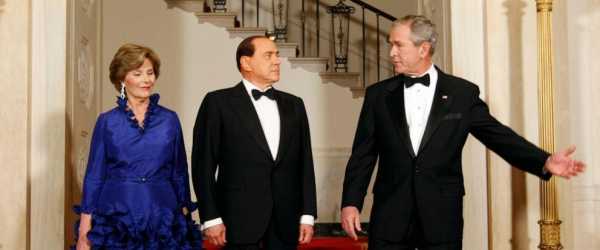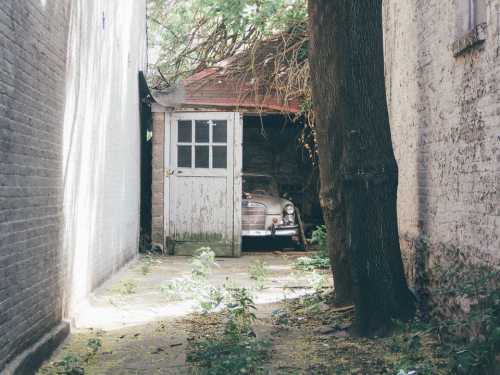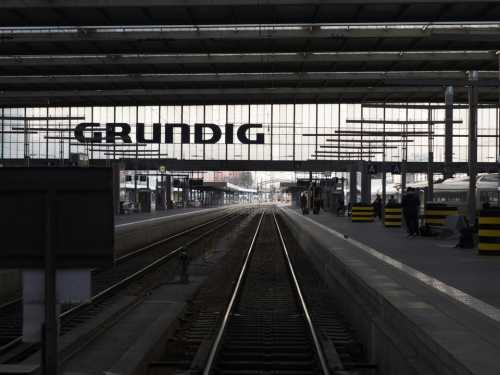
ROME — Silvio Berlusconi cast a spell over Italy — and nearly led it to financial ruin.
Many Italians admired the media mogul for his wealth, his charm and his brash, boastful style, and they kept returning him to power, making him the country's longest-serving premier.
Nothing seemed to shake the one-time cruise ship crooner — not his corruption trials or diplomatic gaffes, not accusations that he was wrecking the country, not even the lurid scandals stemming from sex-fueled “bunga bunga” parties with young women at his villas that turned him into a global joke.
Berlusconi — who died Monday at the age of 86 — had a hold on Italian politics that he summed up in 2009: "The majority of Italians in their hearts would like to be like me.”
That affection faded in 2011 when Europe's debt crisis turned Italy's economy into a shambles, and many blamed Berlusconi, forcing him from office. Handel's “Hallelujah Chorus” rose from the crowd outside the government palazzo where he handed in his resignation to end his third and final term as premier, a leadership tenure spaced out over 17 years.
His Forza Italia political party lost much of its support in recent years but was a coalition partner with current Premier Giorgia Meloni, a far-right leader who came to power in 2022. Berlusconi held no position in the government, and his death is unlikely to have any repercussions on the stability of the government; allies have already declared their intention to keep the party going.
Berlusconi was admitted to the San Raffaele Hospital in Milan on Friday, his second recent hospitalization for treatment of chronic leukemia. A state funeral will be held Wednesday in the city’s Duomo cathedral, according to the Milan Archdiocese.
Once Italy's richest man, Berlusconi used his television networks and other media holdings to launch his long political career, inspiring both loyalty and loathing.
Supporters saw him as a capable and charismatic statesman who sought to elevate Italy on the world stage. To critics, he was a populist who threatened to undermine democracy by wielding political power as a tool to enrich himself and his businesses.
But there was no arguing he radically changed Italian politics when he entered the public arena in the 1990s, introducing U.S.-inspired campaigns.
For a while, Berlusconi seemed untouchable.
Criminal cases against him were launched but ended in dismissals when statutes of limitations ran out in Italy’s slow-moving justice system, or he was victorious on appeal. Investigations targeted the tycoon’s steamy parties involving young women and minors, or his businesses, which included the soccer team AC Milan, the country’s three biggest private TV networks, magazines and a daily newspaper, and advertising and film companies.
Ultimately, only one charge would stick — tax fraud, stemming from a film rights deal.
When it was upheld by Italy’s top criminal court in 2013, he was stripped of his Senate seat, and banned from public office for several years in keeping with anti-corruption laws. Even then, he bounced back to become a lawmaker in the European Parliament at age 82 and returned to Italy's Senate in 2022.
He stayed at the helm of Forza Italia, the center-right party he created when he entered politics and named for a soccer cheer, “Let’s go, Italy.” With no groomed successor in sight, voters started to desert it.
Berlusconi’s party was eclipsed as the dominant force on Italy’s political right — first by the League, led by anti-migrant populist Matteo Salvini, then by Meloni’s Brothers of Italy party, with its roots in neo-fascism. Following elections in 2022, Meloni formed a government with their help.
Berlusconi lost his standing as Italy’s richest man, although his sprawling media holdings and luxury real estate still left him a billionaire several times over.
In 2013, guests at one of his parties included an underage Moroccan dancer whom prosecutors alleged had sex with Berlusconi in exchange for cash and jewelry. After a trial spiced by lurid details, a Milan court initially convicted Berlusconi of paying for sex with a minor and using his office to try to cover it up. Both denied having sex with each other, and he was eventually acquitted.
The Catholic Church, at times sympathetic to his conservative politics, was scandalized by his antics, and his wife of nearly 20 years divorced him, but Berlusconi was unapologetic, declaring: “I’m no saint.”
Pope Francis sent a telegram of condolence to his family.
His second term, from 2001-06, was perhaps his golden era, when he became Italy’s longest-serving head of government and boosted its global profile through his friendship with U.S. President George W. Bush. Bucking widespread sentiment at home and in Europe, Berlusconi backed the U.S.-led war in Iraq.
As a businessman who knew the power of images, he used U.S.-style party conventions and slick advertising that broke with the gray world of Italian politics, in which voters essentially chose parties and not candidates. His rivals had to adapt.
Berlusconi saw himself as Italy’s savior from what he described as the Communist menace — years after the Berlin Wall fell. From the start of his political career in 1994, he portrayed himself as the target of a judiciary he described as filled with leftist sympathizers, and he always proclaimed his innocence.
When the anti-establishment 5-Star Movement gained strength, Berlusconi branded it a menace worse than Communism.
His close friendship with longtime Socialist leader and former Premier Bettino Craxi was widely credited for helping him become a media baron. Still, Berlusconi billed himself as a self-made man, saying, “My formula for success is to be found in four words: work, work and work.”
He boasted of his libido and entertained friends and world leaders at his villas. In one party, newspapers reported the women were dressed as “little Santas.” At another, photos showed topless women and a naked man lounging poolside.
“I love life! I love women!” an unrepentant Berlusconi said in 2010.
He occasionally selected TV starlets for posts in his Forza Italia party. “If I weren’t married, I would marry you immediately,” Berlusconi reportedly said in 2007 to Mara Carfagna, who later became a Cabinet minister. Berlusconi’s then-wife publicly demanded an apology.
Berlusconi was nicknamed “Papi” — or “Daddy” — by an aspiring model whose 18th birthday bash he attended, also to his wife’s irritation. Later, self-described escort Patrizia D’Addario said she spent the night with him on the evening that Barack Obama was elected U.S. president in 2008.
He loved to compose and sing Neapolitan songs, harking back to his days as a cruise ship entertainer. Like millions of Italians, he had a passion for soccer, and often was in the stands at AC Milan.
He delighted in flouting political etiquette. He sported a bandanna when hosting British Prime Minister Tony Blair at his estate on the Emerald Coast of Sardinia, and it was later revealed he was concealing hair transplants. He posed for photos at international summits while making an Italian gesture — which can be offensive or superstitious, depending on circumstances — in which the index and pinkie fingers are extended like horns.
He stirred anger after the Sept. 11, 2001, terrorist attacks in the United States by claiming that Western civilization was superior to Islam.
When criticized in 2003 at the European Parliament by a German lawmaker, Berlusconi likened his adversary to a concentration camp guard. Years later, he drew outrage when he compared his family's legal woes to what Jews must have felt in Nazi Germany.
Berlusconi was born in Milan on Sept. 29, 1936, the son of a middle-class banker. He earned a law degree, writing his thesis on advertising. He started a construction company at 25 and built apartment complexes for middle-class families on Milan’s outskirts, part of a postwar boom.
But his astronomical wealth came from the media. In the late 1970s and 1980s, he circumvented Italy’s state TV monopoly RAI by creating a de facto network in which local stations all showed the same programming. RAI and his Mediaset television network accounted for about 90% of the national market in 2006.
When the “Clean Hands” corruption scandals of the 1990s decimated the political establishment that had dominated postwar Italy, Berlusconi filled the void, founding Forza Italia in 1994.
His first government, also in 1994, collapsed after eight months when a volatile ally who led an anti-immigrant party yanked support. But aided by an aggressive campaign, including a mass mailing of glossy magazines recounting his success story, Berlusconi swept to victory in 2001.
Shuffling his Cabinet occasionally, he stayed in power for five years, setting a record for government longevity in Italy. But it wasn’t easy.
A Group of Eight summit he hosted in Genoa in 2001 was marred by violent anti-globalization demonstrations and the death of a protester shot by a police officer. Berlusconi faced fierce domestic opposition and alienated some allies by sending 3,000 troops to Iraq after the ouster of Saddam Hussein in 2003. For a time, Italy was the third-largest contingent in the U.S.-led coalition.
At home, he constantly faced accusations of sponsoring laws aimed at protecting himself or his businesses, but he insisted he always acted in the interest of all Italians. Legislation passed when he was premier allowing officeholders to own media businesses but not run them was deemed by his critics to be tailor made for Berlusconi.
An admirer of U.S. President Ronald Reagan and British Prime Minister Margaret Thatcher, Berlusconi passed reforms that partially liberalized the labor and pension systems, among Europe’s most inflexible. He also was chummy with Putin, who stayed at his Sardinian estate, and he visited the Russian leader, notably going to Crimea after Moscow illegally annexed the peninsula in 2014.
In 2006, as Italy was ridiculed as “the sick man of Europe,” with its economy mired in zero growth and its budget deficit rising, Berlusconi narrowly lost the general election to center-left leader Romano Prodi, who had been president of the European Union Commission.
In 2008, he bounced back for what would be his final term as premier. It ended abruptly in 2011, when financial markets lost faith in his ability to keep Italy from succumbing to the eurozone’s sovereign debt crisis. To the relief of economic powerhouse Germany, Berlusconi reluctantly stepped down.
Health concerns dogged him over the years. He suffered from heart ailments, prostate cancer and was hospitalized for COVID-19 in 2020.
During a political rally in 2009, a man threw a souvenir statuette of Milan’s cathedral at Berlusconi, fracturing his nose, cracking two teeth and cutting his lip.
Berlusconi was first married in 1965 to Carla Dall’Oglio, and their two children, Marina and Piersilvio, were groomed to hold top positions in his business empire. He married his second wife, Veronica Lario, in 1990, and they had three children, Barbara, Eleonora and Luigi.
They also divorced, and at the time of his death he was in a relationship with Marta Fascina, 33, who was elected to parliament last year for Berlusconi’s party.
___
Retired Associated Press Rome bureau chief Victor L. Simpson contributed.
Sourse: abcnews.go.com






